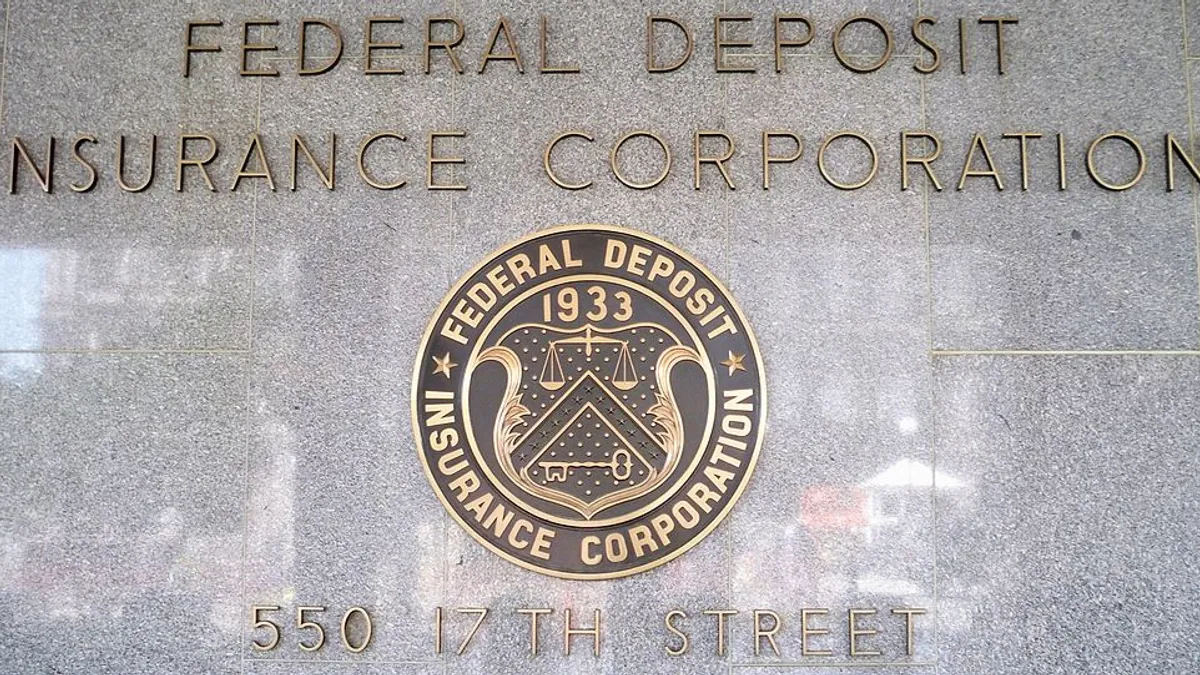The heads of the Office of Minority and Women Inclusion (OMWI) at the nation's financial regulators each backed their respective agencies' use of diversity and racial sensitivity training during a virtual House Financial Services Subcommittee hearing Tuesday.
The hearing follows the Trump administration's instruction that federal agencies end racial sensitivity training, calling the practice "divisive, anti-American propaganda."
In a memo sent to federal agencies Friday, Office of Management and Budget Director Russell Vought said the trainings "engender division and resentment within the Federal workforce."
During Tuesday's three-hour hearing, where House lawmakers asked the OMWI heads at each financial regulator to detail their agency's diversity and inclusion efforts and share their progress, Rep. Al Green, D-Texas, brought up the Trump administration's recent statements and asked whether each agency held such training and found it appropriate and useful.
Federal Deposit Insurance Corp. (FDIC) OMWI Acting Director Nikita Pearson said her agency holds such training with the purpose to "educate, not alienate."
"The feedback that we've received from employees is that they appreciate the training that we have. They appreciate the opportunity to share their stories," she said. "Other folks appreciate the opportunity to hear different perspectives, and we all feel that this is a good thing for us."
Pearson's counterparts at the Office of the Comptroller of Currency (OCC), the Federal Reserve, the Federal Reserve Bank of New York and the National Credit Union Administration (NCUA) gave similar answers when asked about their respective diversity training programs.
Green said the Trump administration's stance on diversity training at federal agencies is evidence that legislation is needed regarding diversity in banking.
"We have evidence now that a president will do what he can to throw up the efforts of the OMWI, something that has been the law for many years now," he said. "Dodd-Frank brought it into being under the leadership of the Honorable [House Financial Services Committee Chairwoman] Maxine Waters. This kind of effort to thwart what we are trying to do, which is constitutional, which is American, should not be allowed."
Green urged lawmakers to support H.R. 8160, a bill he introduced Friday that would amend the Dodd-Frank Act to require federal banking regulators to include a diversity and inclusion component in the bank rating system.
Tuesday's House hearing on diversity and inclusion follows the release of a new report detailing a lack of diversity among financial regulators.
Since the federal government began conducting some form of oversight over financial activities in 1791, a total of 327 individuals have been appointed to financial regulatory agencies. Of that figure, 10, or 3%, have been Black.
That's according to a recent report compiled by Chris Brummer, faculty director of Georgetown's Institute of International Economic Law, and published by the Brookings Institution.
"[E]ven with the churn of varying political cycles since the 1930s, not to mention the coming of age of the Civil Rights movement in the 1960s, the participation of African Americans in leadership positions in financial regulatory agencies has been intermittent, at best," Brummer states in his report.
Democrats "have fared far better over time than Republicans when it comes to making Black political appointments to financial regulatory agencies, and are responsible for eight of the 10 Black regulators," Brummer wrote.
Rodney Hood's appointment as the head of the NCUA by President Donald Trump marked the first time an African American was placed in charge of a banking regulator.
Given Hood's appointment, and the failure of Democrats to nominate any Black financial regulator over the last half-decade, "the current Republican record is, if dismal, superior to that of Democrats," Brummer said.
Sheila Clark, the program director for the Federal Reserve's Office of Diversity and Inclusion, said during Tuesday's hearing that the agency is "not satisfied" with the amount of information banks are submitting regarding their diversity policies and practices.
"In the last two years, regulated entities slightly increased their submissions of assessments of their diversity policies and practices," Clark told lawmakers. "However, we are not satisfied with the level of responsiveness from these entities."
The Fed is continuing to explore ways to facilitate greater participation by the banks, Clark said.





















